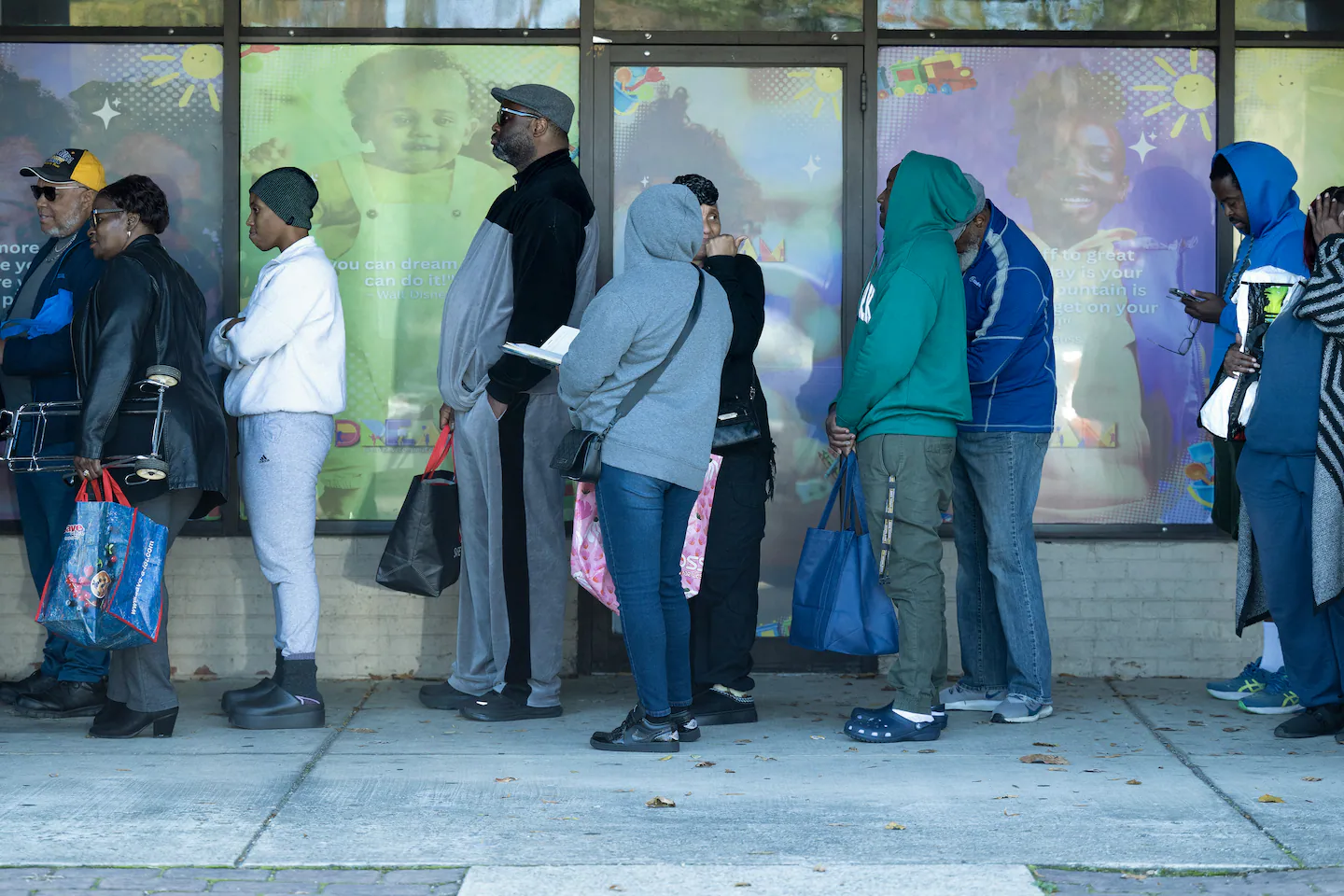Copyright The Boston Globe

The latest: On Wednesday, the Senate failed for a 12th time to approve a House-passed funding bill that would reopen the government. Democrats want to permanently extend Affordable Care Act subsidies before agreeing to a deal, a condition Republicans have rejected. Hardest hit so far are roughly 1.4 million federal workers who have been furloughed or are working without pay. Some 1.3 million members of the military may miss their first full paychecks on Wednesday. The Trump administration has also moved to fire thousands more federal employees and deny others back pay once the shutdown ends, contrary to federal law. Pain is already being felt across the Washington metro area, home to more than 15 percent of the government’s 1.9 million civilian workers. Boston won’t be spared. Local angle: Federal workers account for just 1 percent of Massachusetts employment — about 45,000 jobs — but the state still has a lot on the line: Washington-funded social programs, infrastructure projects, and research contracts. Even tourism is hurting, with Massachusetts losing an estimated $18.6 million in visitor spending per week. “Every event that I go to around the city, I run into a Boston resident who’s affected by this in one way or another,” Mayor Michelle Wu told reporters on Wednesday. Economists estimate that every week the government is idle trims national GDP by roughly 0.1 percentage point, or about $30 billion. Each passing week raises the risk of a chain reaction: consumers postponing purchases, businesses freezing hiring or investments, and wary investors retreating. “The hit to the job market has been on the margin so far, but job losses will soon pick up as government contractors pull back on their payrolls,” said Mark Zandi, chief economist at Moody’s Analytics. “If the shutdown does extend well into November, the disruption to government services will intensify, with broader economic implications.” Federal workers who are furloughed and not being paid can apply for unemployment benefits, but those who are required to work cannot — even if their paychecks are on hold. Zoom in: If the government remains closed into next month, tens of thousands of Massachusetts families face the loss of federally funded programs covering child care, heating bills, and school lunches. That’s in addition to the looming funding freeze on SNAP food payments to more than 1 million Massachusetts recipients and nutrition assistance for 126,000 participants in a special program for women and children. Delays in these programs could create ripple effects for landlords, grocers, and heating-oil dealers, as well as for social-service nonprofits. “The state government cannot begin to match what the federal government provides,” Governor Maura Healey told reporters on Wednesday. Partisan cuts: The state is heavily reliant on federal funding, with about a quarter of its $61 billion in budgeted revenues this year coming from Washington. President Trump hasn’t shied away from wielding the government’s financial leverage. “We’re not closing up Republican programs, because we think they work, so the Democrats are getting killed,” he said last week. “We are closing up Democrat programs that we disagree with, and they’re never going to open again.” On Oct. 2, the Trump administration canceled $466 million of energy projects in the state, part of $7.5 billion of terminations nationally. Universities, hospitals, and research organizations are bracing for further cuts after losing an estimated $2.6 billion in grants from the National Institutes of Health and National Science Foundation. At UMass Amherst, researchers have been told that new grant payments and contract renewals could be delayed, forcing some labs to pause hiring or scale back projects. Even short interruptions can cause lasting damage: graduate students lose stipends, contractors miss payments, and time-sensitive experiments may have to be restarted. Hundreds of millions in funding to help pay for the replacement of two aging bridges that carry traffic on and off Cape Cod are in doubt after an administration official announced a pause in $11 billion in US Army Corps of Engineers projects targeting Democratic cities. Final thought: The economy remains on a healthy track, but confidence among businesses and consumers is waning. The Associated Industries of Massachusetts Business Confidence Index fell in September, the seventh consecutive month that the measure was below the line separating optimism from pessimism. The University of Michigan’s Index of Consumer Sentiment is running nearly 20 points below its average last year and 40 points below pre-COVID levels. In a Substack post, economist Paul Krugman cited three reasons for the disconnect: Other than AI spending, much of the economy is lackluster; layoffs haven’t surged, but jobs are harder to find; and while the affluent are thriving thanks to a strong stock market, the rest of the country isn’t. If the federal shutdown ends soon, pressure on the economy will ease. All bets are off if it drags on. Ay, oh, way to go, D.C.



